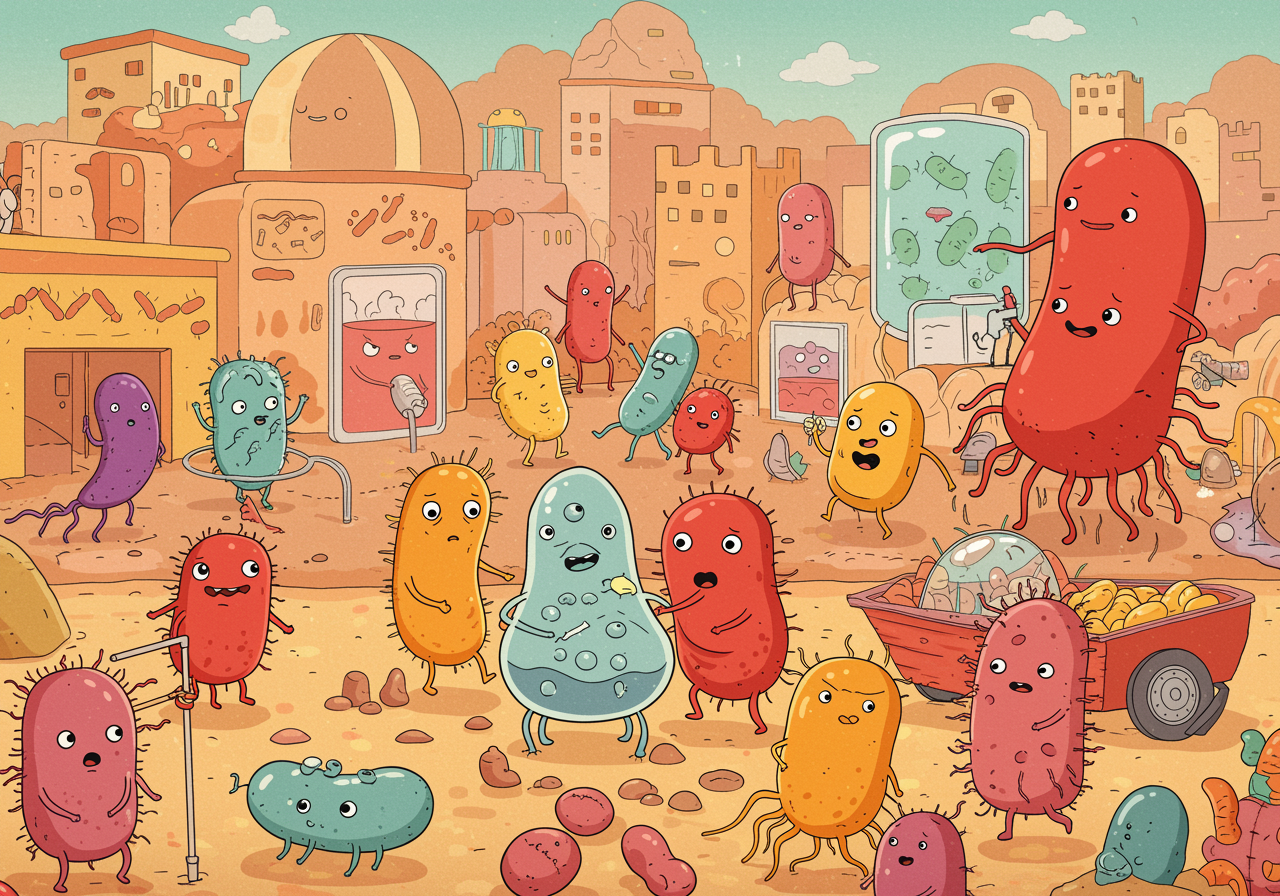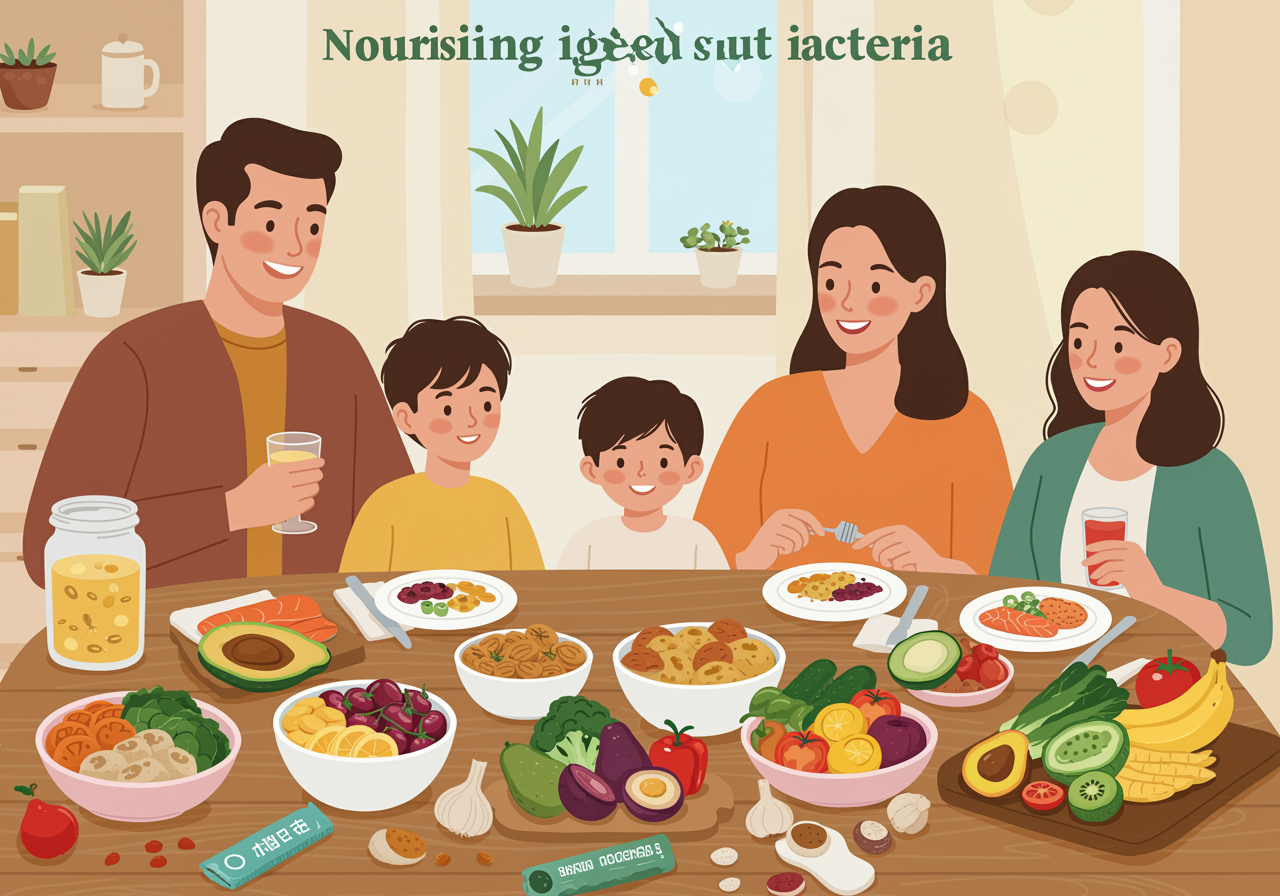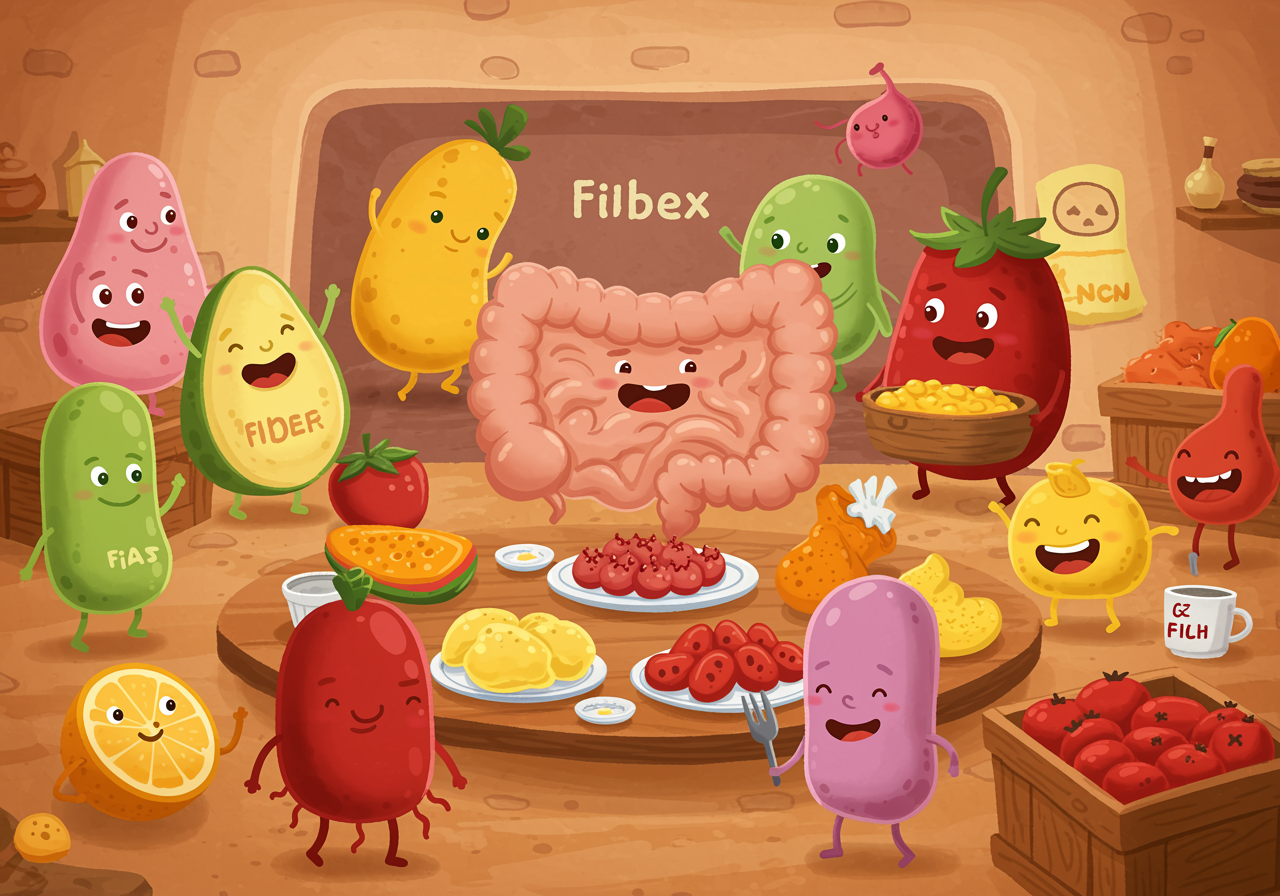Your Gut’s Secret City: How Tiny Bacteria Are Changing Everything We Know About Food
Discover the amazing world living inside you and why scientists are rewriting the rules of healthy eating
Explore how billions of tiny bacteria in your gut are like a bustling city that helps decide how you feel, think, and stay healthy every single day.
Overview
Imagine if you found out that inside your body lives a secret city with trillions of tiny residents working 24/7 to keep you healthy! That's exactly what scientists have discovered about the bacteria in our guts. This invisible world is so important that it's completely changing how doctors, nutritionists, and families think about food. Understanding your gut bacteria helps explain why some foods make you feel amazing while others leave you sluggish, and why your friend might thrive on foods that don't work for you. It's like having a personalized instruction manual for your body that we're just now learning how to read!

Understand in 30 Seconds
Get up to speed quickly
- Your Gut Is Like a Busy City: Trillions of bacteria live in your intestines, working together like citizens in a city. Different types do different jobs to keep you healthy.
- Food Feeds Your Bacterial Neighbors: Every bite you eat feeds different bacteria. Fiber feeds the helpful ones, while too much sugar can feed the troublemakers.
- Gut Health Affects Your Whole Body: These bacteria help control your mood, immune system, and even how your brain works. A happy gut often means a happier you!
- Science Is Rewriting Nutrition Rules: New research shows that 'healthy eating' might be different for each person based on their unique bacterial community.
Real Life Scenario
Situations you can relate to
Think about your favorite pizza loaded with cheese and pepperoni. When you eat it, you're not just feeding yourself – you're feeding trillions of tiny roommates in your gut! Some bacteria love the cheese and work hard to break it down. Others prefer the fiber in the tomato sauce. But what happens when you eat too much processed food and not enough vegetables? It's like if a city only had fast food restaurants and no grocery stores – some residents would thrive, but others would struggle. Scientists have discovered that people with more diverse gut bacteria (like a city with lots of different types of workers) tend to be healthier overall. This is why your grandmother's advice to 'eat your vegetables' is actually backed by cutting-edge science – those veggies feed the helpful bacteria that keep your gut city running smoothly!

Role Play
Spark a conversation with “what if” scenarios
What if you could shrink down and visit the bacteria city in your gut?
- Role play: Take turns being different bacteria characters. One parent can be 'Fiber Fred' who gets excited about broccoli, while the child is 'Sugar Sam' who parties too hard when candy arrives. Act out how they feel when different foods come to town!
What if you were a nutrition detective investigating why someone feels tired after lunch?
- Role play: Create a case file together. Look at what they ate and guess which bacteria might be happy or upset. Draw the 'crime scene' in their gut and solve the mystery of the afternoon energy crash.
What if you could design the perfect meal to make your gut bacteria throw a celebration party?
- Role play: Plan a 'Bacteria Birthday Party' menu together. Research which foods make different beneficial bacteria happy and create a colorful feast that would make your whole gut community cheer!
FAQs
Frequently asked questions people want to know
Are all bacteria in our gut good for us?
Not all bacteria are helpful! A healthy gut has mostly good bacteria that help digest food and fight off harmful germs. It's all about balance – like having more helpful neighbors than troublemakers in your community.
Can we actually change our gut bacteria?
Yes! Your gut bacteria community can change pretty quickly based on what you eat. Scientists have seen changes in just a few days when people switch their diets. It's like renovating your bacterial city!
Why do some people react differently to the same foods?
Everyone has a unique mix of gut bacteria, like having different residents in their bacterial city. Your bacteria might love spicy food while your friend's bacteria prefer mild flavors, which explains why foods affect people differently.
Examples in the Wild
See how this works day to day
- Professional athletes are now working with gut bacteria specialists to optimize their performance through personalized nutrition plans (Stanford Medicine Research, 2023)
- Scientists found that people with diverse gut bacteria were more resistant to COVID-19 complications (Nature Medicine, 2023)
- Some restaurants are starting to label foods as 'microbiome-friendly' to help customers choose gut-healthy options (Food & Wine Magazine, 2024)
- Researchers discovered that gut bacteria can influence chocolate cravings and might explain why some people are 'chocoholics' (American Chemical Society, 2023)
In Summary
What you should know before you start
- Your gut contains trillions of bacteria that work together like a city, affecting your health, mood, and energy levels
- Different foods feed different bacteria, so eating diverse, fiber-rich foods helps maintain a healthy bacterial community
- Gut bacteria research is changing nutrition advice from 'one-size-fits-all' to personalized recommendations
- Simple changes like adding more vegetables and fermented foods can improve your gut health in just days
Pro-tip for Parents
You got this!
If your child wrinkles their nose at talk about bacteria, remind them that these aren't the 'germy' bacteria that make you sick – they're more like tiny superheroes! Start conversations during meal prep by asking 'What bacteria friends are we feeding today?' This makes the invisible world tangible and builds healthy associations with nutritious foods. Don't worry about getting every scientific detail perfect; focus on the wonder and curiosity. Kids often love the idea that they're like a walking ecosystem!

Keep an Eye Out For
Find these examples in everyday life
- News stories about personalized nutrition plans based on gut bacteria testing
- Food packaging that mentions 'prebiotic' or 'probiotic' benefits – great conversation starters about feeding gut bacteria
- Your child's mood or energy changes after eating certain foods – perfect moments to discuss the gut-brain connection
Explore Beyond
Look up these related research topics
- How fermented foods like yogurt, kimchi, and sourdough bread support gut health
- The connection between gut bacteria and mental health (the gut-brain axis)
- How antibiotics affect gut bacteria and why doctors are more careful about prescribing them